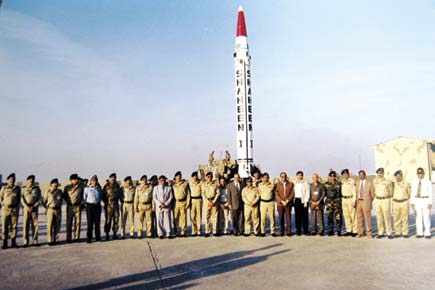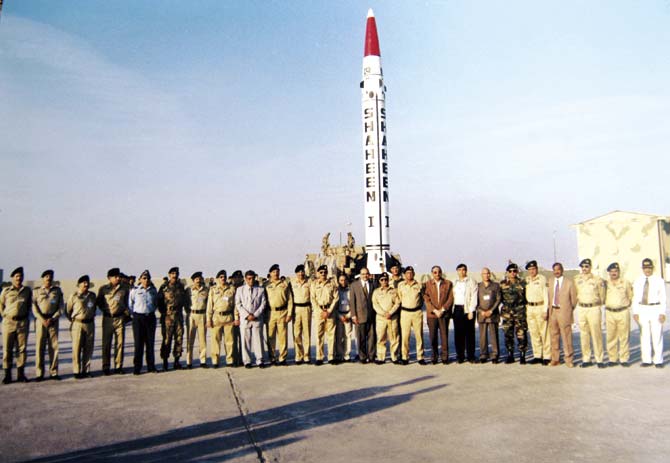Pakistan has a new Senate Chairman, Mr Raza Rabbani

 Pakistan has a new Senate Chairman, Mr Raza Rabbani. Pakistan’s democracy has not always resulted in the best leadership taking charge of important portfolios, but Mr Rabbani known as ‘Mr Clean’ and a thoroughbred democrat from the Pakistan People’s Party (PPP) is a perfect choice for the post of Senate chairman. On the other hand, the new Deputy Chairman Senate Maulana Abdul Ghafoor Haidri, senior leader of the Jamiat Ulema-i-Islam-Fazl (JUI-F) is from a rightwing party. We will see how this pans out for the future of the Senate. A progressive chairman and a regressive deputy chairman in the Senate is a reflection of our society and democratic process. Pakistan voted out a progressive party, the PPP, because it could not deliver on economy and governance. We voted in a rightwing party, the Pakistan Muslim League-Nawaz (PML-N), because many people believed it would lead to economic growth. Unfortunately, the PML-N has hardly done anything to improve the economy.
Pakistan has a new Senate Chairman, Mr Raza Rabbani. Pakistan’s democracy has not always resulted in the best leadership taking charge of important portfolios, but Mr Rabbani known as ‘Mr Clean’ and a thoroughbred democrat from the Pakistan People’s Party (PPP) is a perfect choice for the post of Senate chairman. On the other hand, the new Deputy Chairman Senate Maulana Abdul Ghafoor Haidri, senior leader of the Jamiat Ulema-i-Islam-Fazl (JUI-F) is from a rightwing party. We will see how this pans out for the future of the Senate. A progressive chairman and a regressive deputy chairman in the Senate is a reflection of our society and democratic process. Pakistan voted out a progressive party, the PPP, because it could not deliver on economy and governance. We voted in a rightwing party, the Pakistan Muslim League-Nawaz (PML-N), because many people believed it would lead to economic growth. Unfortunately, the PML-N has hardly done anything to improve the economy.

According to the Bulletin of Atomic Scientists, Pakistan is ahead of India in the nuclear arms race by 10 atomic weapons. According to a report, while India has 110 atomic weapons, Pakistan possesses 120. File pic/ Getty Images
It is said that our politicians have different priorities. In Punjab, the ruling party is more interested in making underpasses, flyovers and/or roads than investing in the education system, healthcare, etc. While the civilians can rightly be blamed for skewed priorities, nobody raises the issue of our military’s priorities. In a country with a huge youth bulge and inadequate employment opportunities, the amount of money we spend on nuclear arms is unjustified to say the least. According to the Bulletin of Atomic Scientists, Pakistan is ahead of India in the nuclear arms race by 10 atomic weapons. According to a report, while India has 110 atomic weapons, Pakistan possesses 120. It is quite alarming to see how much money we spend on atomic weapons when we have to repay foreign loans, run on foreign aid and are unable to give a boost to our economy. The arms race in the South Asian region is not just unfortunate but quite dangerous. It makes peace between India and Pakistan all the more important. With rising extremism and militancy in Pakistan and Afghanistan, the entire region feels threatened. After decades of supporting militant outfits for its own vested interests, our military establishment is finally taking some steps to counter some of those same outfits. It is important that at this point in time, our media and civil society should exert pressure on both the military and the government to go after each and every militant organisation instead of going after selective outfits. It is also pertinent to put pressure on the state, as a whole to start spending money on the people of Pakistan and our education system, to counter rising intolerance in society instead of spending money on nuclear weapons.
Ever since the dharna (sit-in) days, some people have started asking why democracy has failed to deliver in Pakistan. From the imbalance in civil-military relations to the incompetence of the political class, many reasons are given to justify this. Some of those who say that democracy has failed, conveniently forget how the military has directly ruled this country for more than three decades and how it has been indirectly ruling for almost forever since Pakistan came into being. The way the military establishment cleverly manoeuvres the political system is interesting to say the least. This is not to say that our politicians have not made mistakes. Yes, many of them are corrupt and many of them are not interested in improving the lives of ordinary Pakistanis, but to blame them for the downward spiral of the country is wrong. Democracy in Pakistan will start to deliver gradually, but only if we hold both military and civilians accountable. Selective accountability of our politicians is not the answer to our woes.
The writer is a Pakistani journalist. Reach her at mehmal.s@gmail.com
 Subscribe today by clicking the link and stay updated with the latest news!" Click here!
Subscribe today by clicking the link and stay updated with the latest news!" Click here!









